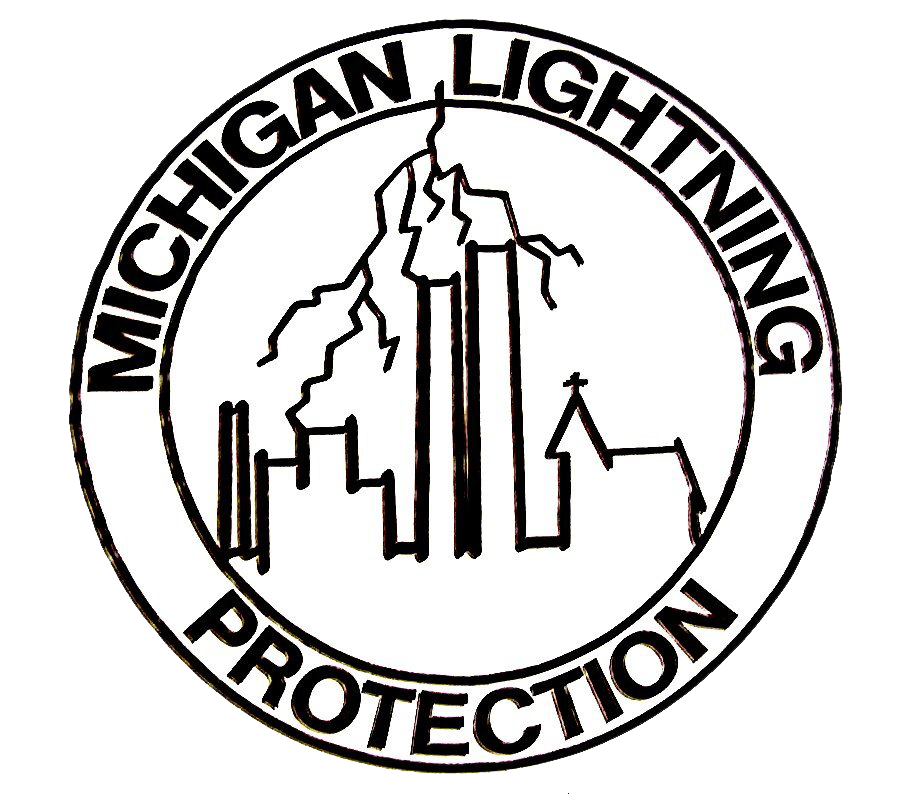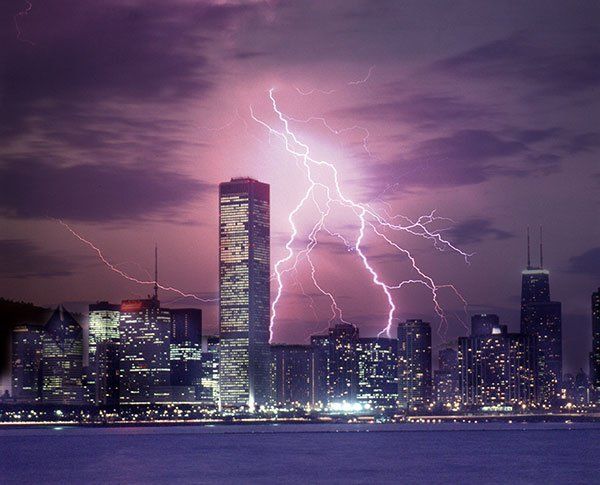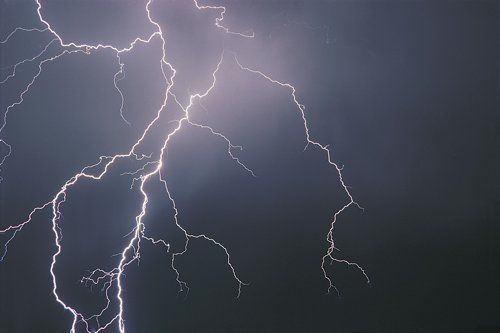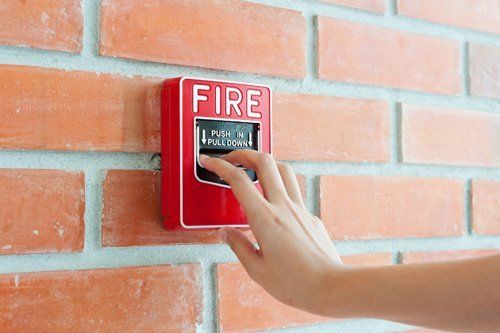Lightning Rods and Lightning Protection Systems for Total Lightning Protection in Michigan Since 1926
Blog Layout
The Benefits of a Lightning Protection System for Homes
Admin • October 31, 2017
New homeowners don't often list installing a residential lightning protection system as one of their top home-improvement projects. There are several good reasons to have a system installed, though. If you've recently purchased a house, here's why you may want to invest in a residential lightning system.
Reduce the Risk of Fire
Lightning protection systems intercept lightning strikes, directing their voltage around a home's structure and directly into the ground.
Without such a system in pace, lightning will take the most direct path to the ground, which is usually via a home's electrical or plumbing system (which both contain metal that conducts electricity well). The metal in electrical and plumbing systems won't catch fire, but they can become very hot. If they get hot enough, wood or other materials near the metal can combust.
Thus, lightning protection systems help reduce the risk of house fires. This is perhaps the most important benefit of these systems because house fires cause serious damage and can be deadly.
Protect Electronics from Surges
By redirecting lightning around a home's electrical system, lightning protection systems also help protect the electronics in a home. This includes all of the following:
- The wiring in the home
- The circuit breaker in the home
- Any electrical appliances (e.g. microwaves, electric ovens and electric dryers)
- Any electronics that are plugged in (e.g. computers and smartphones)
In protecting just these items, a lightning protection system helps safeguard thousands of dollars of electrical equipment. It can cost anywhere from $8,000 to $15,000
to rewire a house, and appliances, computers and smart devices can each run anywhere from a few hundred dollars to more than $1,000.
Lessen the Risk of Explosion
In homes that have corrugated stainless steel tubing (CSST), lightning strikes can cause explosions. This type of piping is used in homes because it's flexible, but it's also particularly susceptible to being damaged by a lightning strike. If CSST is damaged by lightning, the heat generated may cause the gas inside to explode.
In homes that rely on gas appliances, sometimes using CSST is unavoidable. Measures can be taken, however, to protect the piping from the dangers of lightning.
Increase Property Value
Because lightning prevention systems are a type of home improvement, they can increase the value of a residential property. The exact increase will depend on a home's current value, neighborhood and condition, and the increase might not be as high as what remodeling a kitchen would yield. Nevertheless, a system can increase a home's value by at least a little.
Many homeowners use the increase in value to help pay for their lightning protection system. Even if the increase isn't equal to the full cost of installing a system, any increase in property value can help subsidize getting a system installed.
Reduce Homeowners Insurance Premiums
In some cases, homeowners are able to get a discount on their homeowners insurance premiums after they have a lightning protection system installed. Not all insurers offer discounts for systems, but several companies treat the systems as a perimeter security protection that qualifies for a premiums reduction. Discounts are typically up to 3 percent
of a policy's cost.
When available, this discount is another way homeowners can subsidize the cost of having a system installed.
To find out if an insurance company offers any such discount, homeowners should contact their insurer before having a lightning protection system installed. If your current insurer doesn't offer any discount, an independent agent can help you find another insurance company that will provide this discount.
To have a lightning protection system
installed in your house, contact our professional team at Michigan Lightning Protection Inc.
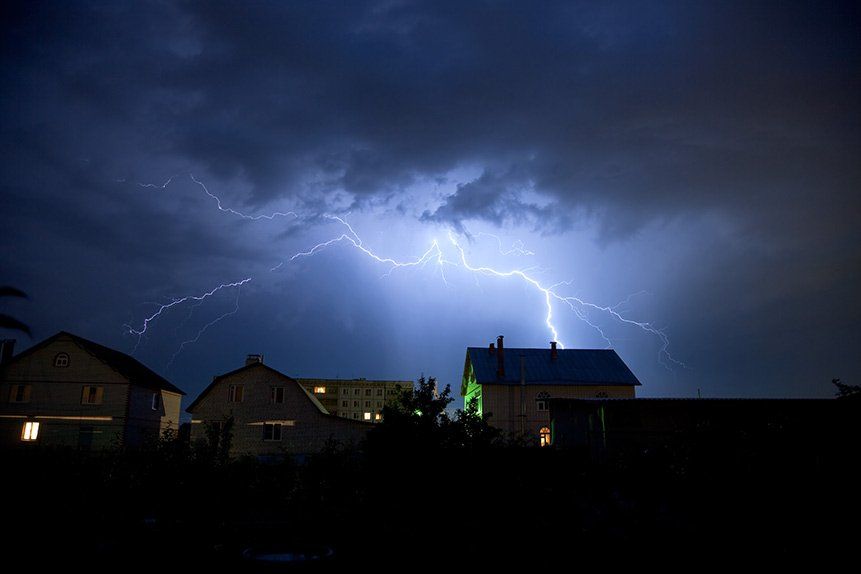
By Admin
•
February 28, 2018
Many people underestimate the dangers of lightning strikes due to lightning myths, which leads them not to take proper lightning safety precautions. Lightning is actually one of the most common causes of weather related deaths in the United States, and lightning strikes kill an average of 100 people each year and injure 1,000 more.
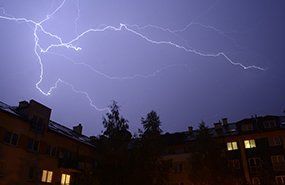
By Admin
•
January 3, 2018
While lightning rods are often seen as an artifact from the past, lightning protection systems are used in more businesses and homes today than at any time in history. According to safety consulting and certification company UL, lightning strikes can cause more than $1 billion in economic damages every year.
Carrying every major lightning protection endorsement available, Michigan Lightning Protection possesses the necessary skill and tools, backed by a commitment to quality, to handle your
lightning protection needs.
QUICK LINKS
CONTACT INFORMATION
Phone:
616-453-1174
Email: Info@michiganlightning.com
Fax: 616-791-7380
Address: 2401 O’Brien Rd. SW Grand Rapids, MI 49534
Mailing Address: P.O. Box 140586 Grand Rapids, Mi 49514


BUSINESS HOURS
- Monday
- -
- Tuesday
- -
- Wednesday
- -
- Thursday
- -
- Friday
- -
- Saturday
- Closed
- Sunday
- Closed
QUICK LINKS
CONTACT INFORMATION
Phone:
616-453-1174
Fax: 616-791-7380
Email: Info@michiganlightning.com
Address:
2401 O’Brien Rd. SW
Grand Rapids, MI 49534
Mailing Address:
P.O. Box 140586
Grand Rapids, MI 49514
BUSINESS HOURS
- Mon - Fri
- -
- Sat - Sun
- Closed


CONTACT US TODAY!
Contact Us
Thank you for contacting us.
We will get back to you as soon as possible.
We will get back to you as soon as possible.
Oops, there was an error sending your message.
Please try again later.
Please try again later.
Content, including images, displayed on this website is protected by copyright laws. Downloading, republication, retransmission or reproduction of content on this website is strictly prohibited. Terms of Use
| Privacy Policy
